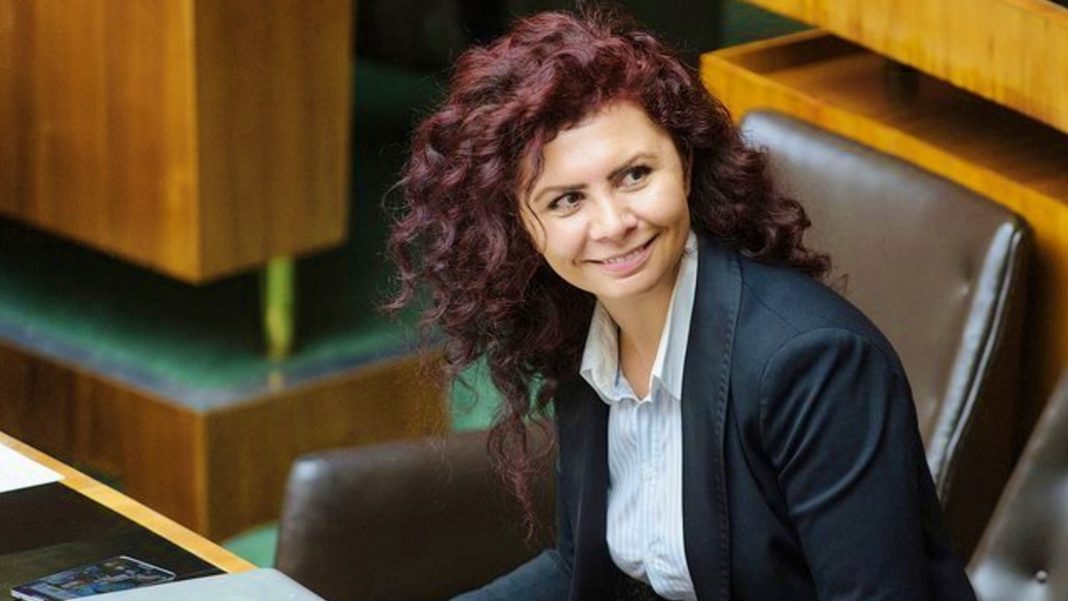An operative working for Turkey’s National Intelligence Organization (MİT) has admitted to being ordered to kill a Kurdish-Austrian politician in a bid to “cause chaos” among the Turkish and Kurdish communities in Austria, the Etkin News Agency (ETHA) reported on Wednesday.
Feyyaz Ö., an alleged Turkish agent, surrendered to the Vienna State Office for the Protection of the Constitution and Counterterrorism (LVT) and reportedly testified to the authorities that he had been tasked with an attack on Berivan Aslan, a politician from Austria’s Green Party.
Aslan, known for her minority-related efforts in the country, had previously revealed a network of the MİT agents in several Austrian provinces.
According to another report on the same day on zackzack.at, website editor Peter Pilz, a former Austrian politician, was also on the assassination list, in addition to Andreas Schieder, an Austrian member of the European Parliament.
The report said the Federal Office for the Protection of the Constitution and the Fight against Terrorism (BVT) was currently conducting the investigations.
The suspect, Feyyaz Ö., an Italian citizen with Turkish roots, reportedly turned himself in to the Austrian authorities in August. He also confessed to surveilling the Kurdish politician for a period of time.
Earlier in September, Austrian Interior Minister Karl Nehammer had signaled that Austrian authorities were questioning an individual who confessed to spying for Turkey’s secret service without mentioning his name.
“This is about an exertion of influence by a foreign power in Austria, and this will in no way be accepted,” Nehammer told a news conference at the time.
In the same statement the minister claimed more than 30 Austrians had been detained in Turkey between 2018 and 2020 and forced by MİT to work for them as spies.
In response to the Austrian allegations, Turkey had condemned the Austrian authorities, saying in a statement released by Turkish Foreign Ministry spokesperson Hami Aksoy, “It is clear that anti-Turkey circles are behind these allegations, which saddens the Turkish community in Austria and damages Turkey-Austria relations.”
In June Kurdish groups in Vienna protesting Turkey’s recent offensive against the Kurds in Syria had reportedly been attacked by ultranationalist Turkish groups. The regime of Turkish President Recep Tayyip Erdoğan accuses many Kurds of having ties to the outlawed Kurdistan Workers’ Party (PKK), which has waged an insurgency in the country since 1984.
Following the clashes between the Turkish and Kurdish groups, Franz Ruf, the director-general for public safety, had said there were clear indications of Turkish influence in Austria. Austrian police launched extensive investigations following the violent events.
Amid the escalating tension between the groups in Austria, the alleged MİT assassination was “supposed to throw Vienna into chaos,” the Zack Zack website claimed on Wednesday.
Germany is another country where Turkey is allegedly active in espionage carried out against Erdoğan opponents, including Kurds and followers of the Gülen movement, a faith-based group inspired by Turkish cleric Fethullah Gülen.
ZDF, Germany’s state-run television channel, aired a documentary in June presenting new evidence about Turkish espionage in the country. According to the documentary, Turkey’s MİT has dozens of official agents in Germany, while almost 8,000 people are working to monitor dissidents and collect information on them.
A 2019 report by Germany’s intelligence service, BfV, confirms the ZDF documentary, saying that MİT has increased its activities in the country.
While being questioned by the Austrian authorities, Feyyaz Ö. had also admitted to giving false testimony as a secret witness in the trial of Metin Topuz, an employee of the US Consulate General in Istanbul who was sentenced to eight years, nine months in prison on terror charges in June of this year.
Topuz was first accused of espionage and attempting to overthrow the Turkish government based on his alleged links to Turkish officials leading a 2013 corruption investigation into Turkey’s ruling Justice and Development Party (AKP).
After a coup attempt in Turkey in 2016, Topuz was found to be a follower of the Gülen movement, which Ankara accuses of orchestrating the abortive putsch. Living in self-imposed exile in the US, Gülen denies the AKP allegations.



